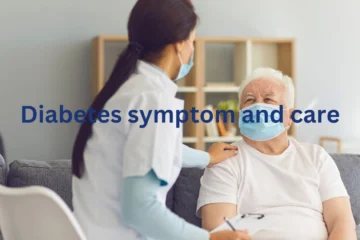Kidney and liver problems are serious health issues that require medical attention. I can provide some general information, but it’s important to consult with a healthcare professional for personalized advice.
Kidney Problems:
- Chronic Kidney Disease (CKD): This is a long-term condition where the kidneys gradually lose their function. Causes include diabetes, high blood pressure, and certain genetic factors.
- Kidney Stones: Hard deposits that form in the kidneys and can cause severe pain when passing through the urinary tract.
- Kidney Infections: Bacterial infections affecting the kidneys, often starting from the bladder.
Liver Problems:
- Hepatitis: Inflammation of the liver, often caused by viral infections (Hepatitis A, B, C), alcohol abuse, or autoimmune diseases.
- Cirrhosis: Scarring of the liver tissue, usually resulting from long-term liver damage. Common causes include alcohol abuse and chronic viral hepatitis.
- Liver Cancer: The development of cancer cells in the liver. It can be primary (originating in the liver) or secondary (spread from other parts of the body).
Common Symptoms:
- Fatigue
- Jaundice (yellowing of the skin and eyes)
- Swelling in the abdomen
- Changes in urine color or frequency
- Abdominal pain
General Recommendations:
- Medical Consultation: If you suspect kidney or liver problems, seek prompt medical attention. Early detection and intervention are crucial.
- Healthy Lifestyle: Adopt a healthy lifestyle with a balanced diet, regular exercise, and limited alcohol consumption to support overall organ health.
- Medication Adherence: If you have a diagnosed condition, follow your healthcare provider’s recommendations regarding medications and treatment plans.
- Regular Monitoring: For individuals with chronic kidney or liver conditions, regular monitoring of blood tests and imaging studies is essential.
Remember, the information provided is general, and individual cases may vary. Always consult with a healthcare professional for accurate diagnosis and appropriate management.
The treatment for kidney and liver problems depends on the specific condition diagnosed by a healthcare professional. Here’s a general overview:
Kidney Problems:
- Chronic Kidney Disease (CKD):
- Management of underlying causes (e.g., diabetes, hypertension).
- Medications to control blood pressure and treat complications.
- Dietary changes, including a controlled intake of protein, sodium, and phosphorus.
- In severe cases, dialysis or kidney transplant may be necessary.
- Kidney Stones:
- Pain management with medications.
- Increased fluid intake to help flush out the stones.
- Medications to dissolve or assist in passing the stones.
- Surgical intervention in some cases.
- Kidney Infections:
- Antibiotics to treat the bacterial infection.
- Increased fluid intake.
- Pain management medications.
- In severe cases, hospitalization may be required.
Liver Problems:
- Hepatitis:
- Antiviral medications for viral hepatitis.
- Supportive care, including rest and proper nutrition.
- Vaccination for Hepatitis A and B.
- Cirrhosis:
- Management of underlying causes (e.g., alcohol cessation, treatment of viral hepatitis).
- Dietary modifications, including sodium restriction.
- Medications to manage complications (e.g., diuretics for fluid retention).
- Liver transplant in severe cases.
- Liver Cancer:
- Treatment options depend on the stage and type of liver cancer.
- Surgery, chemotherapy, radiation therapy, or targeted therapies may be recommended.
- Liver transplant in select cases.
General Recommendations:
- Medical Supervision: Regular follow-ups with healthcare providers for monitoring and adjustments to the treatment plan.
- Medication Adherence: Take prescribed medications as directed by healthcare professionals.
- Lifestyle Changes:
- Adopt a healthy diet low in sodium and processed foods.
- Engage in regular physical activity.
- Limit alcohol consumption or abstain completely, depending on the condition.
- Hydration: Maintain adequate fluid intake, especially for kidney-related issues.
It’s crucial to remember that the information provided is general, and treatment plans should be tailored to individual cases. Consultation with healthcare professionals is essential for accurate diagnosis and personalized treatment.




